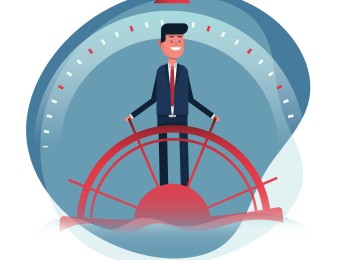This advanced training course is designed for professionals aiming to master Conversion Rate Optimisation (CRO) and digital experimentation. It provides a complete understanding of how data-driven insights, A/B testing, behavioural analytics, and UX optimisation work together to improve digital performance.
Participants will learn how to analyse customer journeys, develop test hypotheses, execute controlled experiments, and scale winning strategies across channels. The course emphasises measurable growth, combining marketing psychology, analytics, and agile experimentation techniques to drive long-term digital success.
By the end of this course, participants will be able to:
- Understand the principles and frameworks of CRO and experimentation.
- Develop structured testing roadmaps aligned with business KPIs.
- Conduct A/B and multivariate tests using data and behavioural insights.
- Translate analytics and heatmap data into actionable design improvements.
- Integrate CRO with broader marketing, UX, and product strategies.
This course is ideal for:
- CRO Managers and Experimentation Leads.
- Performance and Growth Marketers.
- Digital Product Managers and UX Designers.
- Data Analysts and Optimisation Specialists.
- E-commerce and Marketing Executives seeking measurable ROI improvements.
The course combines theory and practice through real-world case studies, interactive exercises, and analytics-based decision-making. Participants will work with testing frameworks and learn to interpret data to create continuous optimisation cycles.
Day 5 of each course is reserved for a Q&A session, which may occur off-site. For 10-day courses, this also applies to day 10
Section 1: Foundations of Conversion Rate Optimisation
- What CRO really means and how it drives revenue growth.
- Understanding user psychology and behaviour models.
- Key CRO metrics: conversion, bounce rate, engagement, and LTV.
- The testing mindset: from intuition to data-driven validation.
Section 2: Experimentation Frameworks and Testing Design
- Building an experimentation culture within organisations.
- A/B testing vs. multivariate testing vs. split URL testing.
- Designing controlled experiments and hypothesis formulation.
- Understanding statistical significance and test duration.
- Avoiding common experimentation pitfalls and biases.
Section 3: Data Analytics and Behavioural Insights
- Leveraging web analytics and heatmaps (Google Analytics, Hotjar, Mixpanel).
- Funnel and cohort analysis for identifying optimisation opportunities.
- Segmenting user behaviour across devices and channels.
- Translating quantitative and qualitative data into actionable insights.
Section 4: UX Optimisation and Personalisation Strategies
- The intersection of UX design and CRO.
- Applying design thinking to enhance conversion.
- Using AI tools for predictive personalisation and dynamic content.
- Case studies: redesigning landing pages for maximum conversion.
Section 5: Scaling Experimentation and Reporting Results
- Building cross-functional collaboration between teams.
- Automating experimentation workflows and reporting.
- Interpreting and communicating test outcomes to stakeholders.
- Creating a continuous testing roadmap for sustainable growth.
Upon successful completion of this training course, delegates will be awarded a Holistique Training Certificate of Completion. For those who attend and complete the online training course, a Holistique Training e-Certificate will be provided.
Holistique Training Certificates are accredited by the British Accreditation Council (BAC) and The CPD Certification Service (CPD), and are certified under ISO 9001, ISO 21001, and ISO 29993 standards.
CPD credits for this course are granted by our Certificates and will be reflected on the Holistique Training Certificate of Completion. In accordance with the standards of The CPD Certification Service, one CPD credit is awarded per hour of course attendance. A maximum of 50 CPD credits can be claimed for any single course we currently offer.
- Course Code PM1-123
- Course Format Classroom, Online,
- Duration 5 days









